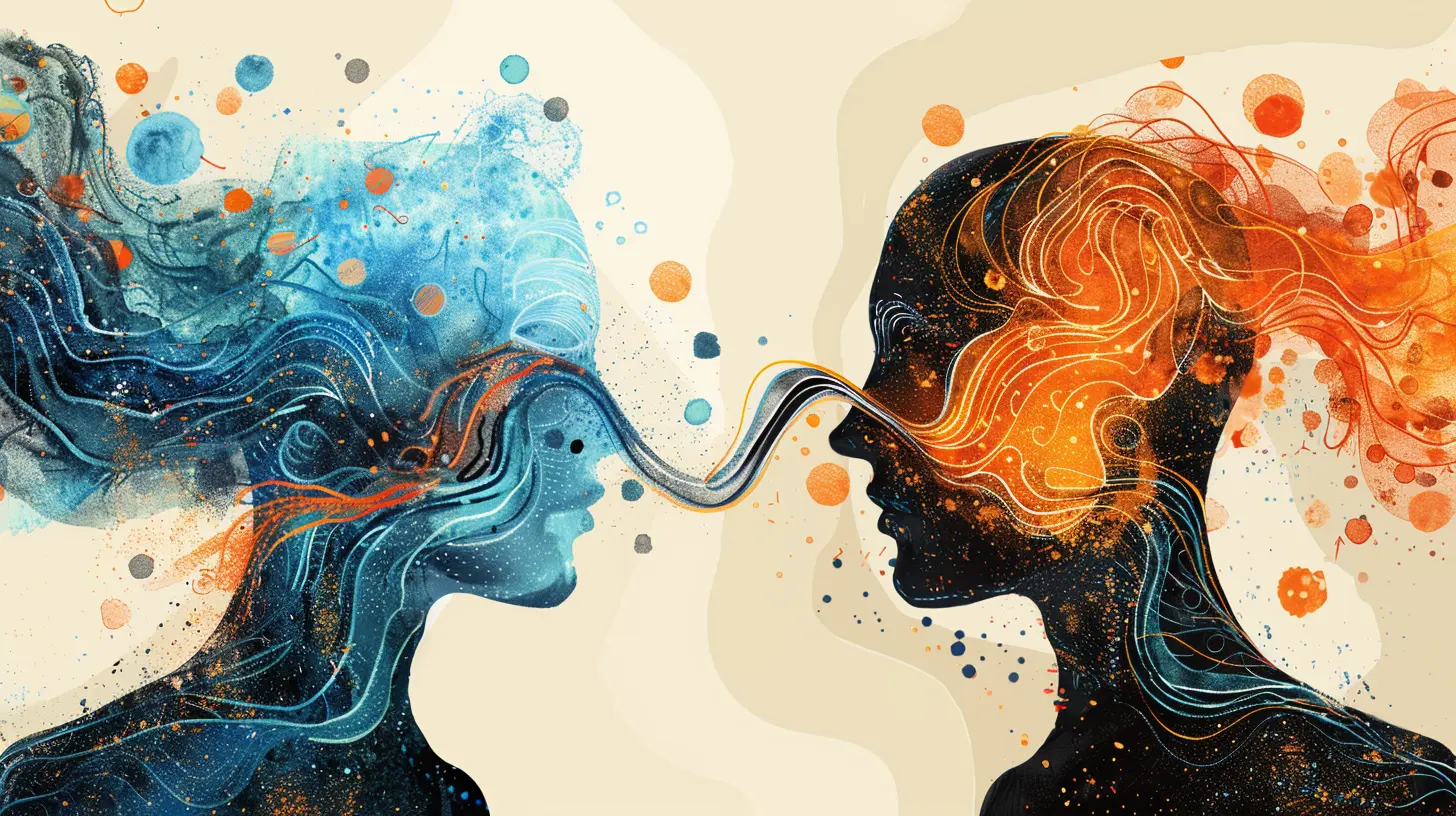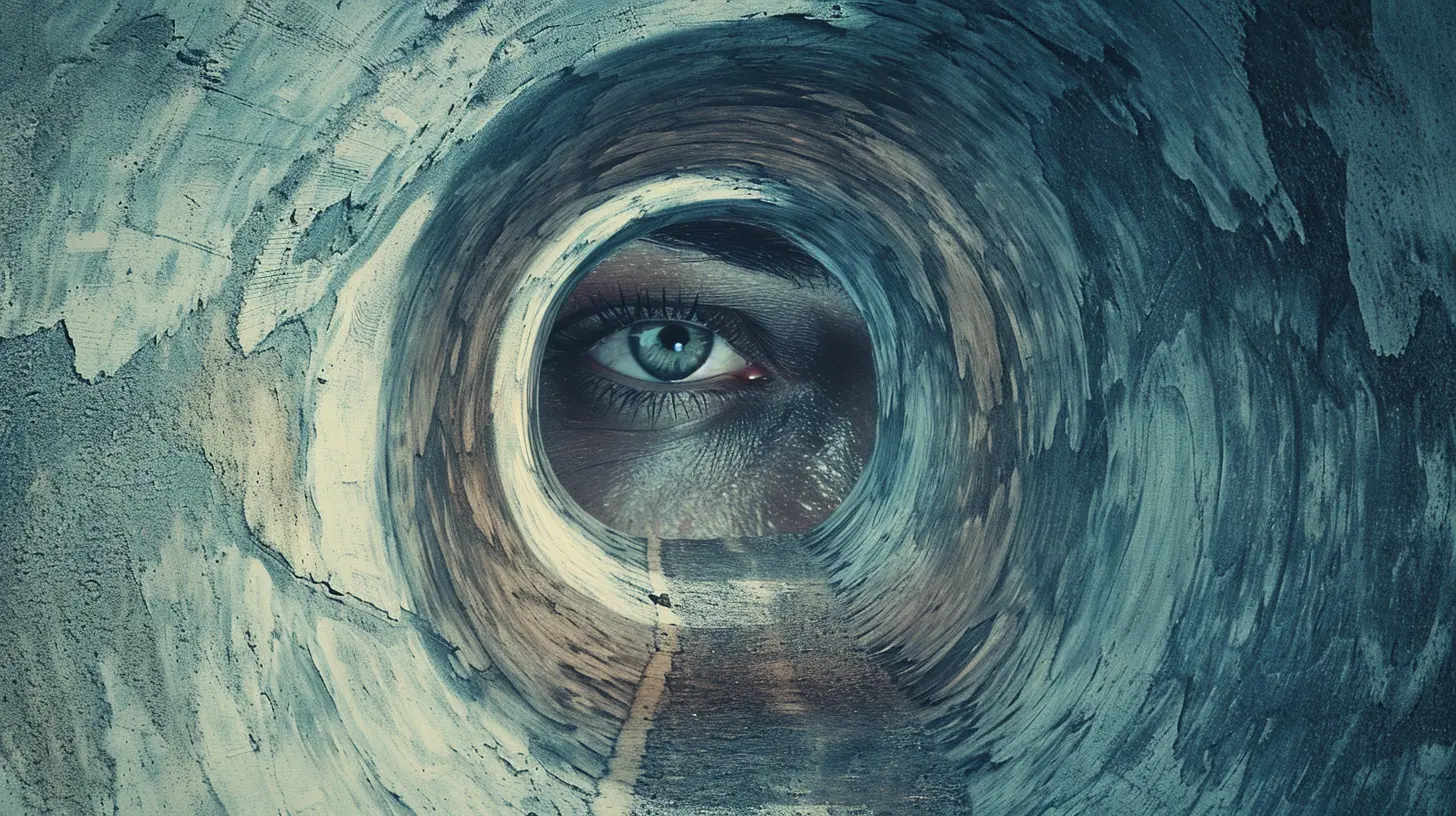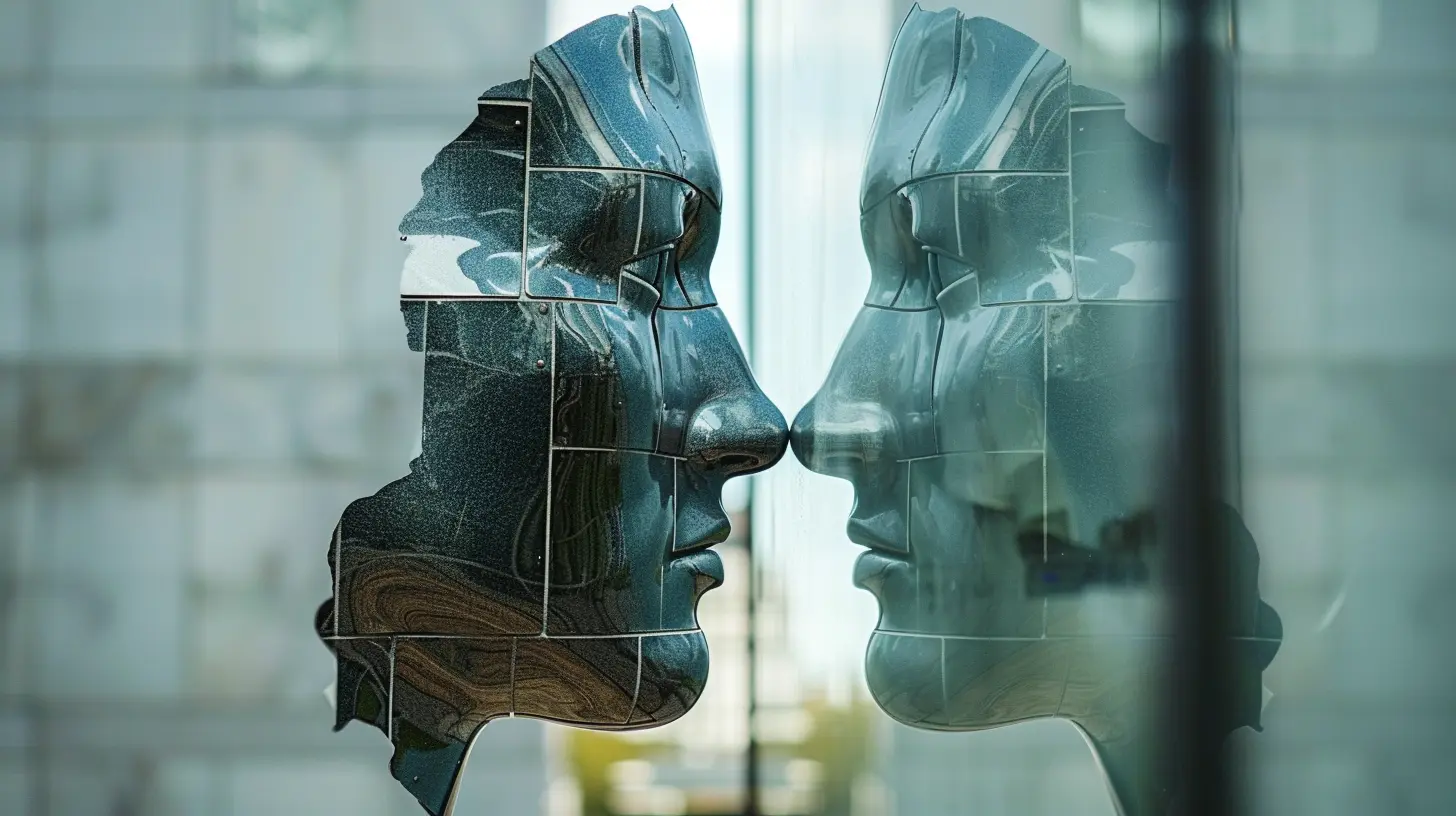The Connection Between Perception and Reality: Cognitive Insights
16 February 2025
Have you ever been in a situation where you were absolutely sure about something, only to find out later that your perception was far from the truth? This happens to all of us, and it’s a fascinating aspect of human cognition. Our brains are constantly interpreting information from the world around us, but does that mean what we perceive is reality? Not necessarily. In this article, we’ll dive into the deep and often mind-bending connection between perception and reality, with a special focus on cognitive insights that can help us understand why things aren’t always as they seem.

What is Perception?
Let’s start from the basics. Perception is how we interpret the sensory information we receive from our environment. When you see a bright yellow banana, hear a car horn blaring, or feel the warmth of the sun on your skin, your brain is taking in sensory input and creating a conscious experience—that’s perception.But here’s the kicker: perception is not always an accurate reflection of reality. Our brains don’t just passively receive information; they actively filter, interpret, and sometimes distort it based on a multitude of factors like past experiences, emotions, and even social influences.
Sensory Input vs. Interpretation
Think about it this way: your senses are like a camera, capturing raw data from the world. But your brain is the editor, and it can tweak, crop, or even completely alter that data before you "see" it. Sometimes, it adds filters based on your mood, or it might even Photoshop in details that aren't really there. This editing process is why two people can experience the same event but walk away with totally different impressions.
Reality: A Consensus or Something More?
On the flip side, reality is often considered the objective state of things—the "truth" that exists whether we perceive it or not. But here’s the million-dollar question: how do we know what reality is if all we have to go on are our perceptions?That’s where things get tricky. Reality can be slippery because, in many ways, we rely on consensus. If most people agree that something is true, we tend to label it as reality. But just because a large group perceives something in a certain way doesn’t make it objectively true. This begs the question: How much of our reality is shaped by collective perception? It's like being in a room full of people who are all wearing rose-tinted glasses—they all agree the world is pink, but that doesn’t mean it's actually pink.
Perception and Reality: Cognitive Biases at Play
Our cognitive system is far from neutral. Instead, our brains are wired with all sorts of cognitive biases that can lead us astray. Cognitive biases are essentially mental shortcuts that our brains take to make decision-making easier, but they often result in distorted perceptions.1. The Confirmation Bias
One classic example is confirmation bias, where we tend to focus on information that confirms our pre-existing beliefs and ignore evidence to the contrary. Picture someone who believes in conspiracy theories; they’ll likely only search for information that supports their view and dismiss any evidence that debunks it. In this case, their perception is skewed, but to them, that is reality.2. The Anchoring Effect
Another cognitive quirk is the anchoring effect, where we heavily rely on the first piece of information we receive when making decisions. For instance, if you’re told that a sweater costs $100 but then see it on sale for $50, you’ll perceive the $50 as a great deal, even if the sweater was never worth $100 in the first place. Your perception of value is influenced by the initial "anchor" price, distorting your view of reality.3. The Halo Effect
There’s also the halo effect, where our overall impression of someone influences our perceptions of their traits. If you think someone is good-looking, you might unconsciously assume they’re also intelligent or kind, even if you have no evidence to back that up. Your brain is filling in the gaps, and just like that, your perception of reality is altered.
The Role of Emotions in Perception
Emotions play a massive part in how we perceive the world. Ever notice how things seem way worse when you’re in a bad mood? Or how everything looks brighter and more hopeful when you’re happy? That’s because emotions color our perception of reality.The Impact of Stress and Anxiety
When you're stressed, your brain goes into "survival mode," and you might start interpreting neutral situations as threatening. Imagine you’re walking down the street and someone gives you a funny look. If you’re already anxious, you might think, "What did I do wrong?" or "Are they judging me?" But in reality, the person may have just been lost in thought or distracted by something else entirely. Stress and anxiety can turn neutral stimuli into perceived threats, distorting your view of reality.The Role of Positive Emotions
On the flip side, when you're in a good mood, you're more likely to perceive events in a positive light. A compliment from a stranger might make your day, and you’ll probably assume they’re a kind person. You’re more generous in your interpretations when you're feeling good, which goes to show how much emotions can shape our perception of reality.
The Brain’s Need for Patterns: Why We See What We Want to See
Humans are wired to look for patterns. It’s a survival mechanism that helped our ancestors make sense of a chaotic world. If you can predict what’s going to happen next—whether it’s a predator lurking in the bushes or a storm brewing on the horizon—you’re more likely to survive.But here’s the thing: sometimes our brain sees patterns where none exist. This is known as apophenia, the tendency to perceive connections and patterns in unrelated phenomena. It’s why we see faces in clouds or think the universe is sending us signs. Our brains love predictability, and when reality doesn’t provide it, we often create it.
Pareidolia: The Brain's Tendency to See Faces Everywhere
A classic example of this is pareidolia, which is the tendency to see faces in inanimate objects. Ever noticed a face on the front of a car or in the texture of a tree? That’s pareidolia in action. Our brain is so good at recognizing faces that it sometimes overextends this ability, making us perceive faces where there are none. Again, our perception is not always a direct reflection of reality; sometimes, it's a product of our brain’s need to find order in chaos.Perception Shaping Reality: The Self-Fulfilling Prophecy
Have you ever heard of a self-fulfilling prophecy? It’s when your expectations about a situation influence your behavior in such a way that those expectations actually come true. In other words, your perception can shape reality.For example, if you walk into a social event thinking, "No one is going to like me," you might act more withdrawn or awkward, which can make it harder for others to engage with you. As a result, people might keep their distance, and you end up feeling isolated—just like you predicted. But here's the kicker: the outcome was influenced by your initial perception.
Can Perception Be Changed?
The good news is that perception is not set in stone. Since it's shaped by cognitive processes, emotions, and biases, it can be altered—sometimes for the better. With self-awareness, mindfulness, and cognitive behavioral techniques, we can challenge our distorted perceptions and get closer to an accurate understanding of reality.Cognitive Behavioral Therapy (CBT)
One of the most effective methods for changing perception is Cognitive Behavioral Therapy (CBT). CBT helps individuals identify and challenge distorted thinking patterns, replacing them with more balanced and rational thoughts. For example, if you're prone to thinking, "I'll never succeed," CBT encourages you to examine the evidence for and against that belief and to come up with a more realistic view, such as, "I've faced challenges before and overcome them."Mindfulness and Perception
Mindfulness practices can also help you become more aware of how your thoughts and emotions are influencing your perception. By observing your thoughts without judgment, you can start to recognize when your mind is distorting reality. This awareness can give you the power to choose a more grounded perception, rather than letting your thoughts and emotions run the show.Conclusion: Perception and Reality Are Intertwined
In the end, perception and reality are deeply intertwined, but they are not the same thing. Our brains are constantly interpreting the world around us, and while this helps us make sense of our environment, it also means that our version of reality is often subjective and influenced by a host of cognitive biases, emotions, and even social factors.The more we understand how our perception works—and the ways it can deceive us—the better equipped we are to navigate the world with a clearer, more accurate view of reality. So next time you find yourself absolutely certain about something, pause for a moment and ask: Is this really how things are, or is this just how I’m perceiving them?
all images in this post were generated using AI tools
Category:
Cognitive ScienceAuthor:

Janet Conrad
Discussion
rate this article
8 comments
Eva Simon
Insightful article on perception shaping our reality!
March 21, 2025 at 5:46 AM

Janet Conrad
Thank you! I'm glad you found it insightful.
Jacob McDonald
This article compellingly illustrates how cognitive biases shape our perception, ultimately influencing our understanding of reality and decision-making processes.
March 12, 2025 at 5:32 PM

Janet Conrad
Thank you for your insightful comment! I'm glad you found the connection between cognitive biases and our perception of reality compelling.
Valen Burton
This article intrigues me! How do our cognitive biases shape the way we perceive reality? I wonder if understanding these connections can lead to more effective communication and empathy in our daily interactions. Would love to hear more!
March 7, 2025 at 4:19 AM

Janet Conrad
Thank you for your interest! Cognitive biases influence our perceptions by filtering our experiences, which can lead to misunderstandings. By recognizing these biases, we can enhance our communication and foster greater empathy in our interactions. I appreciate your curiosity and would be happy to delve deeper into this topic!
Naya Thomas
This article effectively highlights how our perceptions shape our reality, emphasizing the importance of understanding cognitive biases to enhance self-awareness and decision-making.
March 6, 2025 at 4:42 AM

Janet Conrad
Thank you for your insightful comment! I'm glad you found the article's exploration of perception and cognitive biases impactful for self-awareness and decision-making.
Aurelia McDowney
This article beautifully highlights the intricate relationship between perception and reality. It's a profound reminder of how our minds shape our experiences. Thank you for sharing these insightful perspectives—I truly appreciate the depth of your analysis!
March 3, 2025 at 5:47 AM

Janet Conrad
Thank you for your thoughtful comment! I'm glad you found the insights on perception and reality meaningful. Your appreciation means a lot!
Ronan Taylor
Understanding perception can truly transform our reality.
March 1, 2025 at 4:45 PM

Janet Conrad
Absolutely! Perception shapes our experiences and actions, ultimately influencing our reality in profound ways.
Xena Diaz
Great article! Your insights into how our perceptions shape our realities are both enlightening and empowering. It's a valuable reminder to be mindful of our thought patterns. Keep up the fantastic work!
February 28, 2025 at 4:59 PM

Janet Conrad
Thank you so much for your kind words! I'm glad you found the article insightful and empowering. Your support means a lot!
Willow Warren
Great insights! Understanding the link between perception and reality is crucial for personal growth and deeper awareness.
February 23, 2025 at 5:47 AM

Janet Conrad
Thank you! I'm glad you found the insights valuable. Understanding this connection is indeed key to fostering personal growth and awareness.
MORE POSTS

Mindfulness for Athletes: Enhancing Performance and Focus

How to Bring Mindfulness into Your Yoga Practice

How to Break Through Plateaus in Therapy

Can We Trust Our Intuition? A Cognitive Science Perspective

How Exposure Therapy Helps You Overcome Phobias

The Role of Genetics in PTSD: Are Some People Predisposed?